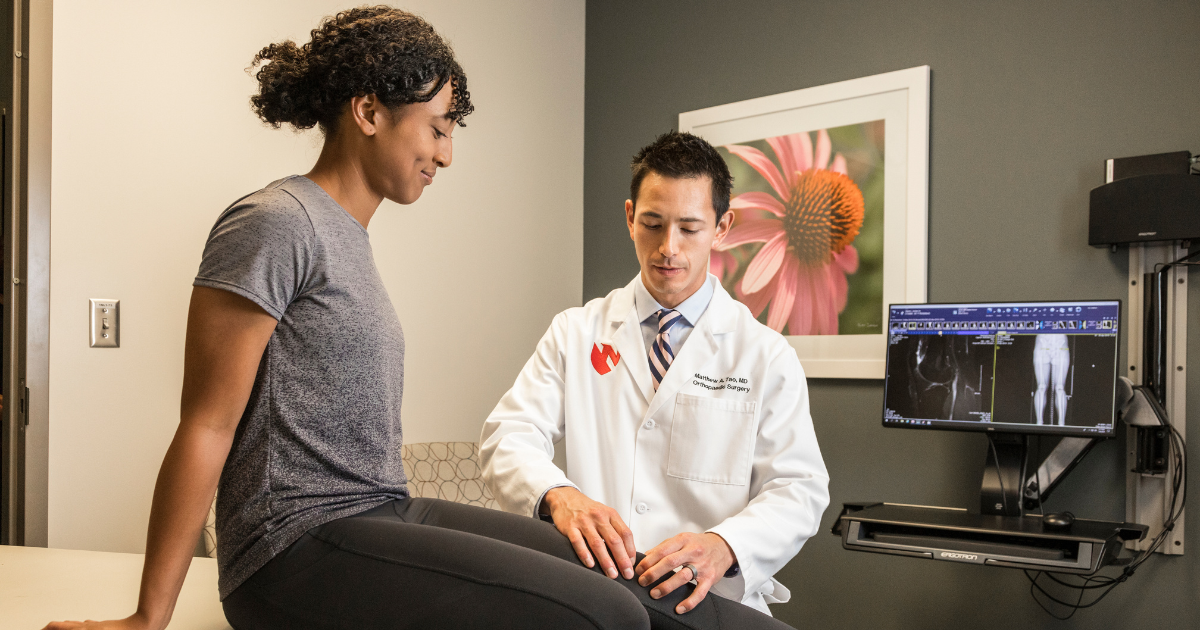Can a diabetes drug prevent osteoarthritis after ACL tear?

A national research study is underway to explore a potential new approach to preventing osteoarthritis in patients who have suffered an anterior cruciate ligament (ACL) tear. Osteoarthritis is the most common type of arthritis and a leading cause of disability.
Researchers are investigating whether metformin, a common diabetes medication, could help reduce the risk of developing this painful joint condition after ACL reconstruction surgery.
The ACL injury and osteoarthritis connection
ACL tears are a common injury, especially among young athletes. While surgery can help stabilize the knee and allow people to return to their activities, osteoarthritis is a long-term risk that is often not discussed.
Matthew Tao, MD, an orthopaedic surgeon involved in the study, explains the concerning statistics.
"At 10 years post-injury, about 50% of people have signs of osteoarthritis on X-rays,” he says. “And at 20 years, that number jumps up to 70%."
This means that a high school athlete who tears their ACL could be facing serious joint problems by their mid-30s. In fact, Dr. Tao notes that people 30 to 39 years of age who have had an ACL tear are “up to 20 times more likely to need a knee replacement than people who haven't had an ACL tear before."
The PIKASO trial
The research study, known as PIKASO (Preventing Injured Knees from osteoArthritis: Severity Outcomes), will test whether a medication called metformin can help prevent or slow down the development of osteoarthritis after ACL reconstruction.
The project brings together top osteoarthritis researchers from nine leading research institutions across the country. Heading the study for UNMC are co-principal investigators Liz Wellsandt, PT, DPT, MS, PhD, a physical therapist, and Yvonne Golightly, PT, MS, PhD, a musculoskeletal epidemiologist and physical therapist. Dr. Wellsandt explains how metformin might help.
"It’s theorized that metformin works to reduce inflammation in the body,” she says. “So, the study hypothesis is that taking metformin might reduce the persistent knee inflammation after ACL injury, which may otherwise contribute to cartilage degradation and osteoarthritis."
The PIKASO trial is what's known as a "two-arm, double-blind, randomized controlled trial." This means:
- Participants will be randomly assigned to one of two groups using a method like the flip of a coin.
- One group will take metformin daily for a year.
- The other group will take a placebo (a pill with no active ingredient) for a year.
- Neither the participants nor the researchers will know who is getting metformin and who is getting the placebo until the study is over.
Researchers will check the participants' knee pain and look for early signs of osteoarthritis using special MRI scans at one and two years after ACL surgery.
Why metformin?
Metformin isn't a new drug – it's been used to treat diabetes for years. However, researchers have noticed that it might have other benefits, including reducing inflammation throughout the body.
Dr. Wellsandt notes that earlier research on metformin has yielded encouraging outcomes, although it remains uncertain if the PIKASO trial will replicate these findings. "In a study observing people with knee osteoarthritis and obesity, metformin users had a lower rate of cartilage loss and were less likely to have total knee replacements over four years compared to nonusers," she says. “But it has not yet been tested after ACL injury. The PIKASO study will do just that.”
Dr. Tao adds, "If this clinical trial with metformin ends up making a difference, it would be a game changer for sports medicine because it's generally considered safe and easy to take but totally outside of our normal realm."
The potential impact
If metformin is shown to help prevent or slow osteoarthritis after ACL injuries, it could have far-reaching effects. Dr. Wellsandt explains, "If effective, metformin could potentially break this downward spiral of worsening knee function and pain – and improve health in both the short and long terms."
For athletes and active individuals, this could mean maintaining their quality of life and activity levels for much longer after an ACL injury.
The PIKASO trial is a large-scale study involving multiple research sites across the U.S. Dr. Tao emphasizes the significance of this collaboration. "It’s an honor for Nebraska Medicine and UNMC to be a part of such a large, multi-center clinical trial.”
Enrollment is underway at the UNMC research site, with researchers seeking participants between ages 19 and 45. They expect to complete enrollment by the end of 2026, with all participants finishing their final study visits by the end of 2028.
Looking ahead
While the results of the PIKASO trial are still years away, if metformin is shown to be effective, it could change how doctors approach ACL injuries and post-surgery care, offering hope for better long-term outcomes for patients.
As Dr. Tao puts it, "If proven successful, this is something that may have implications for the longevity of patients’ knees and their health in the decades to come."
IRB number 0661-23-CB
Clinicaltrials.gov NCT06096259







